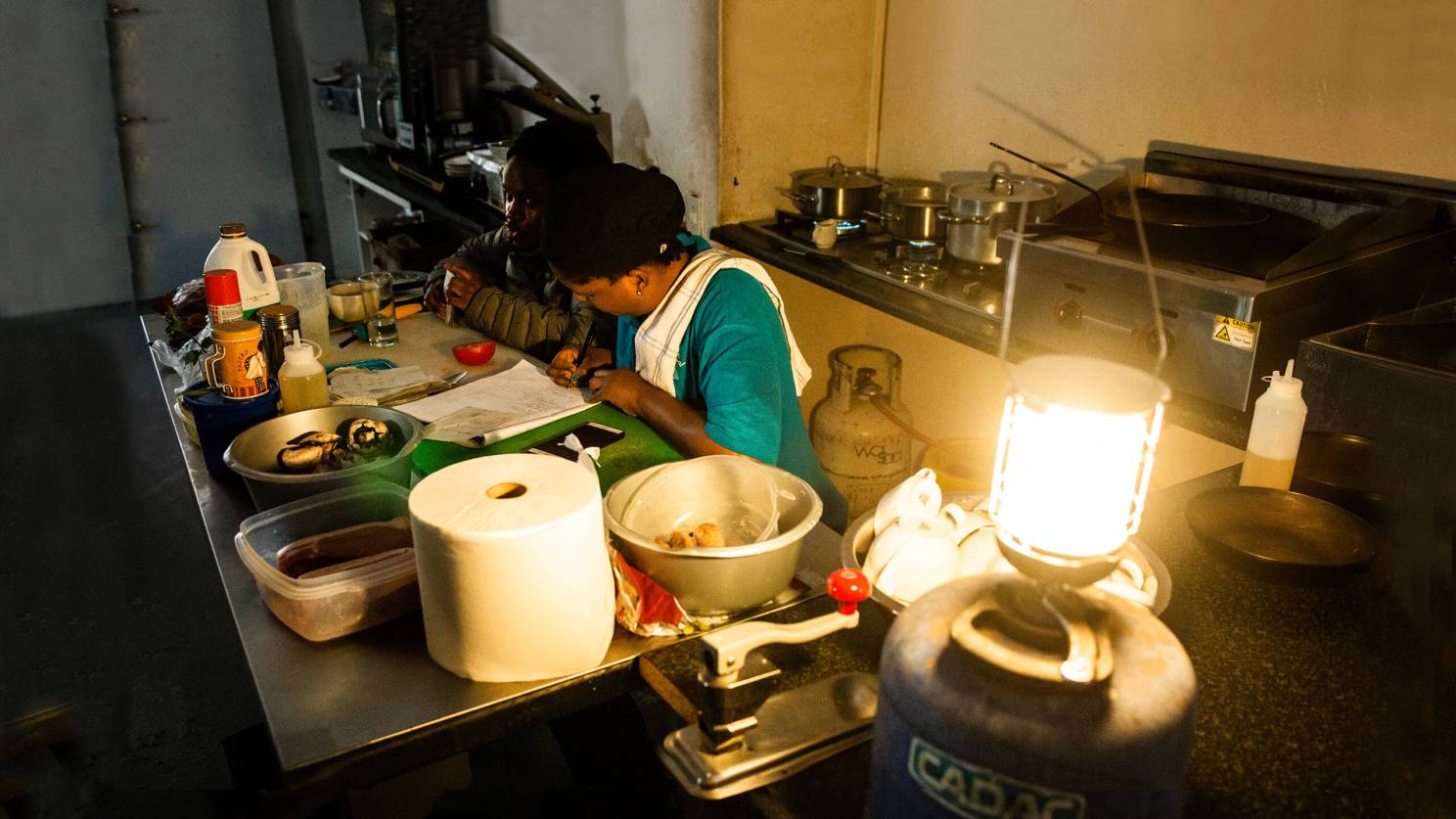Growth Lab researchers diagnose South Africa’s decline, suggest tough choices to move forward

Workers in a cafe use an emergency gas-powered lamp to illuminate the kitchen after a load-shedding power outage stopped their electricity supply in Johannesburg, South Africa. Photo by Waldo Swiegers/Bloomberg/Getty Images
Concluding a two-year investigation, researchers at Harvard Kennedy School’s Growth Lab have issued a stark diagnosis of the “collapsing state capacity” in South Africa after decades of policy failures, mismanagement, and patronage, with painful consequences for millions of poor, jobless people.
The research team offers a set of concrete recommendations that could help the country turn around. They include overhauling dysfunctional state-owned enterprises, especially the electricity utility ESKOM, now plagued by daily scheduled blackouts across the country. The final report urges South Africa to take steps to free up entrepreneurs to exploit opportunities in green growth industries that could create jobs at home and drive clean energy exports.
It also recommends longer-term reforms to create more dense housing clusters located closer to business centers. Black and poor communities are largely stuck in desolate rural areas and in isolated suburbs far from jobs in urban areas — a legacy of South African apartheid.
The team’s research draws on insights from nine studies published over the two-year project, culminating in the final report, “Growth Through Inclusion in South Africa.” The Growth Lab is based at Harvard’s Kennedy School of Government; the Growth Lab’s team of more than 50 research scholars has led growth strategy projects in dozens of countries around the world.
The report’s authors include a dozen researchers, led by Growth Lab founder and director, Professor Ricardo Hausmann, the Rafik Hariri Professor of the Practice of International Political Economy, and contributors included scholars based at a similar strategy lab at the London School of Economics. In South Africa, the Harvard researchers engaged with a network of local experts, including the Centre for Development and Enterprise, a leading think tank, as well as many community representatives across the country.
In the 170-page report’s opening words: “It is painfully clear that South Africa is performing poorly, exacerbating problems such as inequality and exclusion … Three decades after the end of apartheid, the economy is defined by stagnation and exclusion.”




